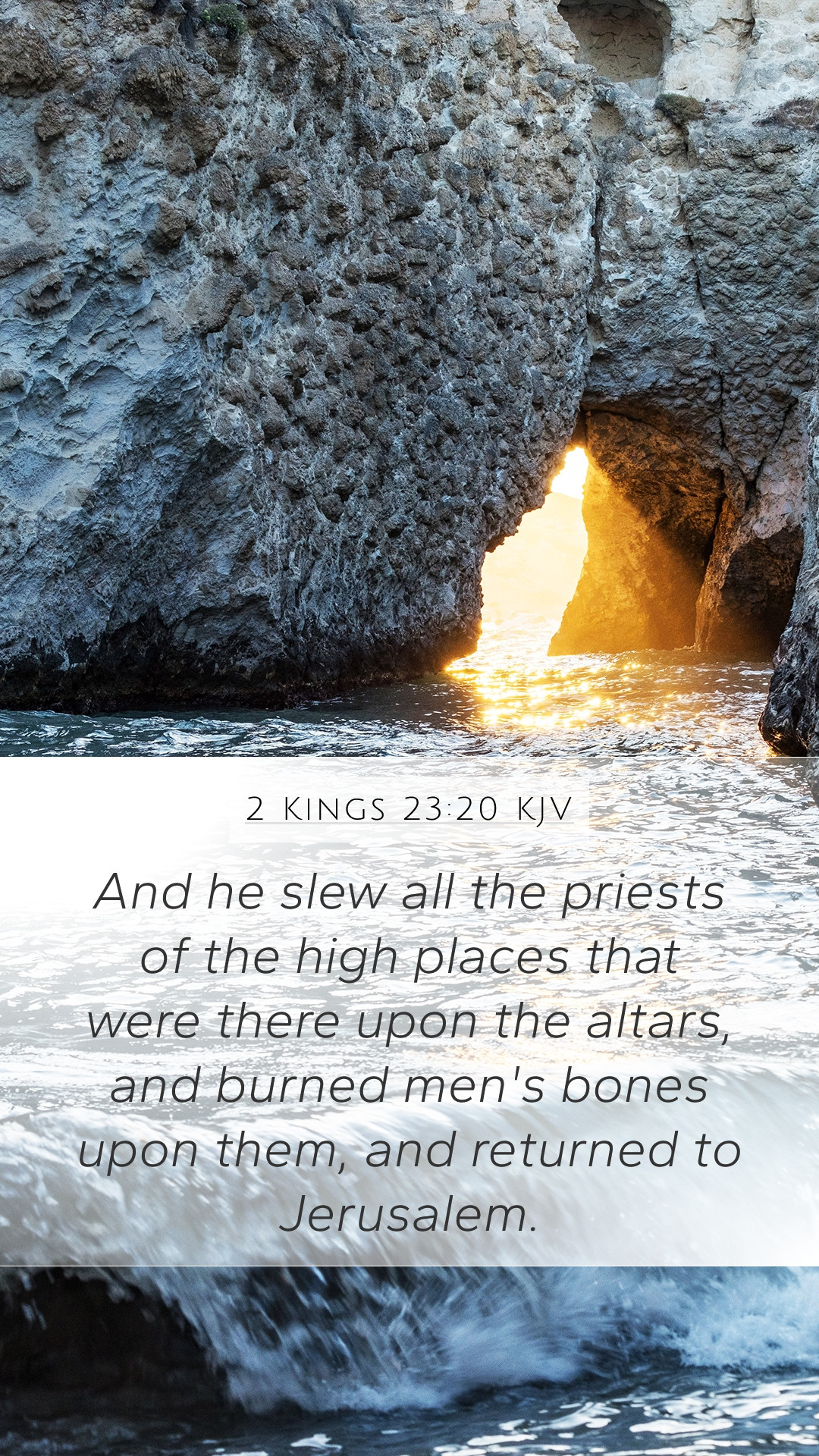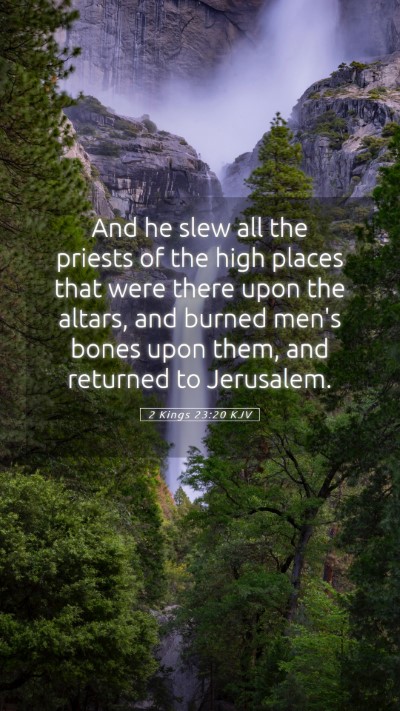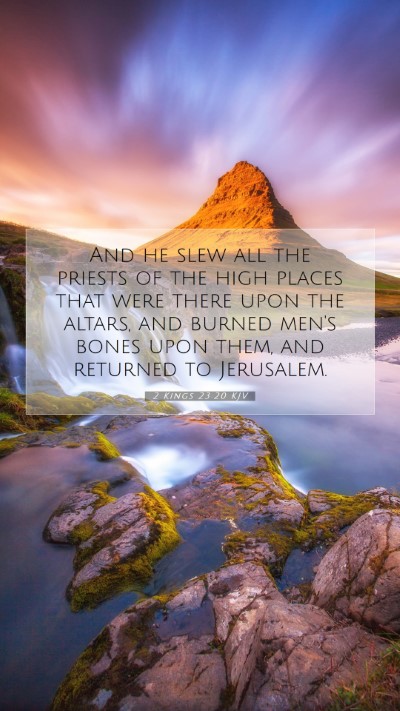Bible Verse Commentary: 2 Kings 23:20
Verse Text: "And he slew all the priests of thehigh places that were there upon the altars, and burned men's bones upon them, and returned to Jerusalem."
Understanding the Verse
The verse captures a pivotal moment in history during King Josiah's reign, a time marked by significant religious reform and a return to Yahweh. Through the analysis of various public domain commentaries, we can discern a deeper biblical exegesis of this passage and its implications.
Historical Context
To fully grasp the meaning of this verse, it is crucial to understand the historical backdrop:
- King Josiah's Reforms: Josiah was a king of Judah who initiated widespread religious reforms in response to finding the Book of the Law during temple repairs (2 Kings 22).
- Worship Practices: The high places were sites of unauthorized worship, leading the people away from true worship of Yahweh. Josiah's actions were aimed at purging these corrupt practices.
- Priests of the High Places: The priests who served at these high places are depicted as complicit in leading the nation astray, and their removal is presented as both a political and spiritual housecleaning.
Bible Verse Meanings and Interpretations
Different commentaries offer rich insights into 2 Kings 23:20:
- Matthew Henry: In his commentary, he emphasizes the significance of Josiah's zeal for God's law, describing his actions as not only necessary but demonstrating the seriousness with which he approached idolatry. Slaying the priests illustrates the decisive nature of Josiah’s reforms.
- Albert Barnes: Barnes suggests that the act of burning bones signifies the total rejection of idol worship and serves as symbolic purification of the land. He notes that this fulfillment of prophecy reflects God's righteousness in judgment against those who led His people astray.
- Adam Clarke: Clarke interprets the extreme measures taken by Josiah as a fulfillment of ancient prophecies and the necessary action to restore rightful worship. He points out the contrast between Josiah and his predecessors, indicating a marked shift toward covenant faithfulness.
Application to Daily Life
Understanding this verse presents several applications for believers today:
- The Call to Purity: Just as Josiah took drastic measures to purge the land of idolatry, modern believers are similarly called to remove any idolatrous practices from their lives, reflecting spiritual commitment and integrity.
- Leadership Responsibilities: Leaders within the Church are reminded of their accountability to uphold the truth of Scripture and to guide their communities toward genuine worship.
- Restoration and Repentance: The act of returning to Jerusalem signifies salvation and renewal, encouraging individuals that genuine repentance can lead to spiritual restoration.
Related Bible Cross References
- 2 Kings 23:4-5: Discusses Josiah's removal of pagan items from the temple.
- Deuteronomy 12:2-4: Outlines God’s instructions regarding the destruction of pagan altars.
- Jeremiah 1:1-3: Contextualizes the prophetic activity during Josiah’s reign.
Conclusion
2 Kings 23:20 is more than just a historical account; it serves as a powerful reminder of the need for true worship and the importance of reclaiming spiritual integrity within the community of faith. King Josiah’s actions encourage believers to examine their faith practices and strive to align their lives with God's commands as found in Scripture.


